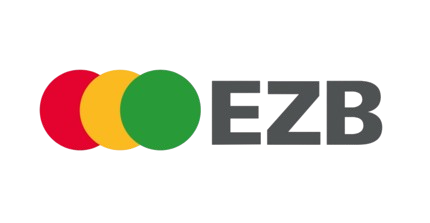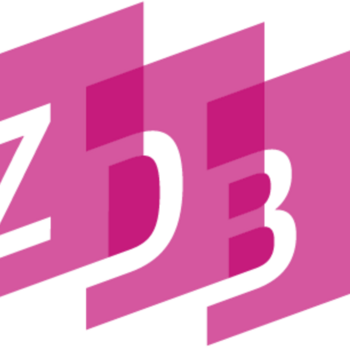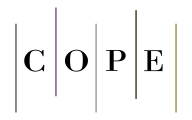Holistički pristup evaluaciji istraživanja i inovacija: Integracija scijentometrijskih indikatora i otvorene nauke / A Holistic Approach to Research and Innovation Evaluation: Integrating Scientometric Indicators and Open Science
DOI:
https://doi.org/10.48052/19865244.2024.3.39Keywords:
open science, research and innovation (R&I), science system, scientometricsAbstract
In the evolving trends of research and innovation (R&I) performance measurement and impact assessment, the traditional scientometric system – largely relying on quantitative metrics such as h-index and journal impact factors – is increasingly under scrutiny due to its limited capacity to capture a wider spectrum of scientific impact. The emergence of open science challenges traditional paradigms by advocating for more transparent and accessible research processes. Theoretically, this study expands the discourse on scientific impact evaluation by advocating for a broader set of criteria encompassing societal and economic dimensions. Integrating open science principles into research evaluation can provide a more comprehensive view of scientific contributions and enable academic inclusivity, transparency, and societal relevance, in line with the ethos of open science. Conceptually, the study analyzes the coexistence and dynamics between scientometric and open science evaluation systems, exploring their competitive and collaborative relationships. It examines the strengths and weaknesses of each system, revealing that a complete replacement of the scientometric approach by open science is unlikely, nor is there stagnation in their development. The main findings suggest a future where scientometric and open science systems coexist and partially converge, especially in the area of research and innovation outcome evaluation. This convergence heralds a more democratic and inclusive approach to evaluating scientific research. For policymakers and organizers of innovative systems, this study offers insights into possible policies that promote open science practices, developing evaluation metrics that acknowledge diverse scientific contributions, and fostering a research culture that values both scientific rigor and societal engagement. Using an exploratory method based on theoretical concepts and practical insights, this study contributes to more nuanced understanding of changing paradigms in research evaluation.
References
All European Academies (ALLEA). 2017. The European Code of Conduct for Research Integrity. Dostupno na: https://allea.org/code-of-conduct/ [05. 01. 2024.].
Bornmann, L., & Mutz, R. 2015. Growth rates of modern science: A bibliometric analysis based on the number of publications and cited references. Journal of the Association for Information Science and Technology, 66(11), 2215-2222.
Czarnitzki, D., Grimpe, C., & Pellens, M. 2015. Access to research inputs: Open science versus the entrepreneurial university. Journal of Technology Transfer, 40(6), 1050–1063.
David, P. A. 2004. Understanding the emergence of ‘Open Science’ institutions: Functionalist economics in historical context. Industrial and Corporate Change, 13(4), 571–589.
DORA. 2012. San Francisco Declaration on Research Assessment. Dostupno na: https://sfdora.org/ [20. 12. 2023.].
Edquist, C. 1997. Systems of Innovation: Technologies, Institutions, and Organizations. Pinter Publishers.
Etzkowitz, H. 2018. Innovation governance: from the “endless frontier” to the triple helix. Geographies of the University, 291-311.
Etzkowitz, H., & Leydesdorff, L. 2000. The Dynamics of Innovation: From National Systems and "Mode 2" to a Triple Helix of University-Industry-Government Relations. Research Policy, 29(2), 109-123.
European Commission. 2020. A new ERA for research and innovation. COM (2020) 628 final. Dostupno na: https://eur-lex.europa.eu/legal-content/EN/TXT/PDF/?uri=CELEX:52020DC0628 [20. 09. 2023.].
European Commission. 2021. Horizon Europe. Dostupno na: https://ec.europa.eu/commission/presscorner/detail/en/IP_21_1122 [20. 09. 2023.].
Edquist, C. 1997. Systems of Innovation: Technologies, Institutions, and Organizations. Pinter Publishers.
G7. 2021. G7 Research Compact. Dostupno na: https://www.gov.uk/government/publications/g7-2021-research-compact [20. 02. 2024.].
Grand, A., Wilkinson, C., Bultitude, K., & Winfield, A. F. T. 2016. Mapping the hinterland: Data issues in Open Science. Public Understanding of Science, 25(1), 88–103.
Grand, A. 2015. Open science. Journal of Science Communication, 14(4), C02.
Hicks, D., Wouters, P., Waltman, L., de Rijcke, S., & Rafols, I. 2015. Bibliometrics: The Leiden Manifesto for research metrics. Nature, 520(7548), 429–431.
Hampton, S. E., Anderson, S. S., Bagby, S. C., et al. 2015. The Tao of Open Science for ecology. Ecosphere, 6(7), 120.
Hicks, D., Wouters, P., Waltman, L., de Rijcke, S., & Rafols, I. 2015. Bibliometrics: The Leiden Manifesto for research metrics. Nature, 520(7548), 429–431.
Hormia-Poutanen, K., & Forsström, P. 2016. Collaboration at international, national and institutional level – Vital in fostering Open Science. LIBER Quarterly, 26(1), 3–12.
Langlois, R. N., & Garzarelli, G. 2008. Of hackers and hairdressers: Modularity and the organizational economics of open-source collaboration. Industry and Innovation, 15(2), 125–143.
Leydesdorff, L. 2000. The triple helix: an evolutionary model of innovations. Research Policy, 29(2), 243-255.
Leydesdorff, L., & Etzkowitz, H. 1998. Triple Helix of innovation: introduction. Science and Public Policy, 25(6), 358-364.
Lundvall, B. Å. (Ed.. 1992. National Systems of Innovation: Towards a Theory of Innovation and Interactive Learning. Pinter Publishers.
Lyon, L. 2016. Transparency: The emerging third dimension of Open Science and open data. LIBER Quarterly, 25(4), 153–171.
McKiernan, E. C., Bourne, P. E., Brown, C. T., et al. 2016. How Open Science helps researchers succeed. eLife, 5, e16800.
Mukherjee, A., & Stern, S. 2009. Disclosure or secrecy? The dynamics of Open Science. International Journal of Industrial Organization, 27(3), 449–462.
Nelson, R. R. Ed.. 1993. National Innovation Systems: A Comparative Analysis. Oxford University Press.
Peters, M. A. 2010. Openness, web 2.0 technology, and Open Science. Policy Futures in Education, 8(5), 567–574.
Powell, A. 2016. Hacking in the public interest: Authority, legitimacy, means, and ends. New Media & Society, 18(4), 600–616.
Priem, J., Taraborelli, D., Groth, P., & Neylon, C. 2010. Altmetrics: A manifesto. Dostupno na: http://altmetrics.org/manifesto [05. 01. 2024.].
Rafols, I., Molas-Gallart, J., Chinchilla-Rodríguez, Z., & Vargas-Quesada, B. 2012. How journal rankings can suppress interdisciplinary research: A comparison between Innovation Studies and Business & Management. Research Policy, 41(7), 1262-1282.
Rhoten, D., & Powell, W. W. 2007. The frontiers of intellectual property: Expanded protection versus new models of Open Science.
Scheliga, K., & Friesike, S. 2014. Putting Open Science into practice: A social dilemma? First Monday, 19(9).
Stock, W. G., Dorsch, I., Reichmann, G., & Schlögl, C. 2023. Counting Research Publications, Citations, and Topics: A Critical Assessment of the Empirical Basis of Scientometrics and Research Evaluation. Journal of Information Science Theory & Practice (JIStaP), 11(2).
Shibayama, S. 2015. Academic commercialization and changing nature of academic cooperation. Journal of Evolutionary Economics, 25(2), 513–532.
UNESCO. 2021. UNESCO Recommendation on Open Science. Dostupno na: https://unesdoc.unesco.org/ark:/48223/pf0000378849 [05. 01. 2024.]. Waltman, L. 2016. A review of the literature on citation impact indicators. Journal of Informetrics, 10(2), 365–391.
Wolkovich, E. M., Regetz, J., & O'Connor, M. I. 2012. Advances in global change research require Open Science by individual researchers. Global Change Biology, 18(7), 2102
Downloads
Published
How to Cite
Issue
Section
License
Copyright (c) 2025 Pregled: časopis za društvena pitanja / Periodical for social issues

This work is licensed under a Creative Commons Attribution-NonCommercial 4.0 International License.














